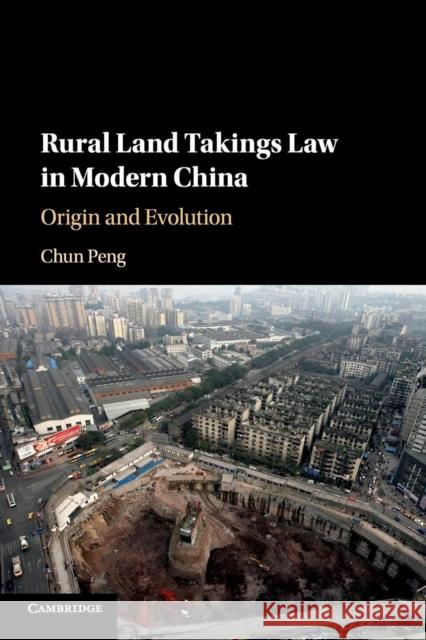Rural Land Takings Law in Modern China: Origin and Evolution » książka
topmenu
Rural Land Takings Law in Modern China: Origin and Evolution
ISBN-13: 9781108738293 / Angielski / Miękka / 2019 / 352 str.
Rural Land Takings Law in Modern China: Origin and Evolution
ISBN-13: 9781108738293 / Angielski / Miękka / 2019 / 352 str.
cena 182,26
(netto: 173,58 VAT: 5%)
Najniższa cena z 30 dni: 146,03
(netto: 173,58 VAT: 5%)
Najniższa cena z 30 dni: 146,03
Termin realizacji zamówienia:
ok. 16-18 dni roboczych.
ok. 16-18 dni roboczych.
Darmowa dostawa!
A contextualized and critical reading of the origin and evolution of China's rural land takings law.











